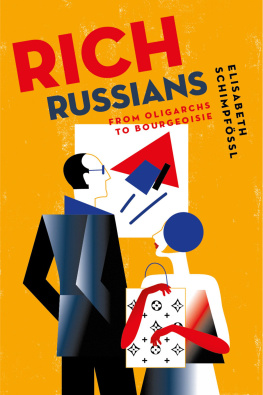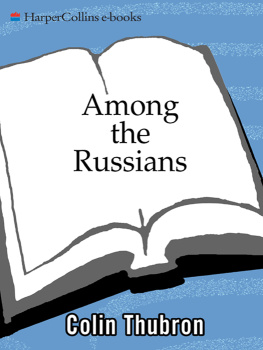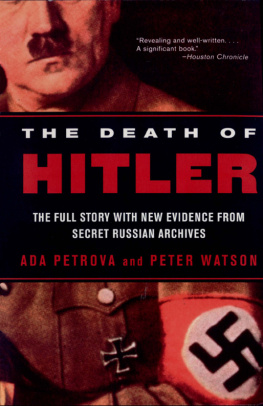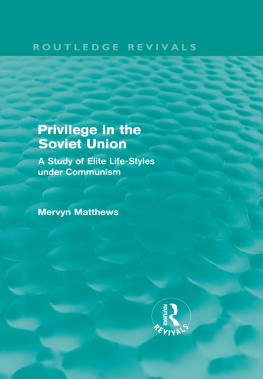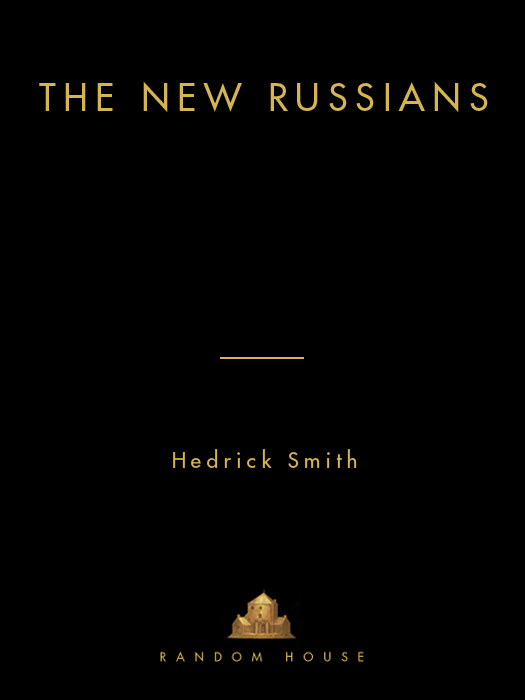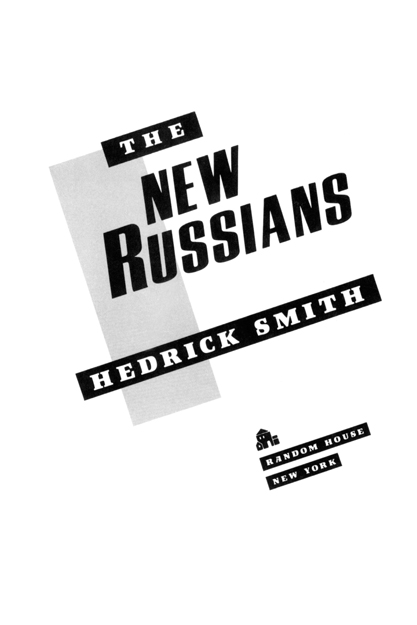Copyright 1990 by Hedrick Smith
Map copyright 1990 by Anita Karl and Jim Kemp
All rights reserved under International and Pan-American Copyright Conventions. Published in the United States by Random House, Inc., New York, and simultaneously in Canada by Random House of Canada Limited, Toronto.
Grateful acknowledgment is made to the following for permission to reprint previously published material:
Thurlbeck Productions, Inc.: Seven lines from the song Revolution by DDT.
Library of Congress Cataloging-in-Publication Data
Smith, Hedrick.
The new Russians.
1. Soviet UnionSocial life and customs1970
2. Soviet UnionSocial conditions1970
DK276.S527 1990 947.085 90-53127
eISBN: 978-0-307-82938-2
v3.1
ALSO BY HEDRICK SMITH
The Russians
The Pentagon Papers (co-author with Neil Sheehan, Fox Butterfield, and E. W. Kenworthy)
Reagan: The Man, the President (co-author with Adam Clymer, Richard Burt, Leonard Silk, and Robert Lindsey)
Beyond Reagan: The Politics of Upheaval (co-author with Paul Duke, Haynes Johnson, Jack Nelson, Charles Corddry, Charles McDowell, and Georgie Ann Geyer)
The Power Game
To my children,
Laurie, Jenny, Scott, and Lesley
May you enjoy a lifetime
of genuine peace
and love
ACKNOWLEDGMENTS
Whatever the shortcomings of this book, they would have been much greater without the generous help, advice, and comments of many friends and colleagues.
Five people deserve special acknowledgment. My friend Greg Guroff, a Russian historian with a fund of knowledge and personal acquaintances in Moscow, not only opened the doors of his many friends for me but read the entire manuscript and infused each section with his understanding of Soviet society and Russian history. Bruce Parrott, director of Soviet Studies at the Johns Hopkins School of Advanced International Studies, also read the manuscript, sharing with me his insights and steering me from missteps in the world of Soviet high politics.
Anne Lawrence, my chief researcher and an accomplished student of Soviet society, provided me not only with organized, detailed chronologies of rapidly changing developments in many fields, but also with rich memoranda on many special events, people, and topicsall of which made the swift writing of this book not only easier but possible. Kate Medina, my editor at Random House, mingled her infectious and supportive enthusiasm with wise comments about its architecture and suggestions about making it more alive and accessible for the reader. With history literally in the making, she persuaded an entire publishing house to move with unusual speed so the reporting would be fresh to the reader. My wife, Susan, not only gave me her many acute observations and personal reflections during months of our traveling together, but then sat up into the wee hours many a morning, reading the new pages and offering her suggestions and, best of all, her encouragement.
I am indebted to two institutions: WGBH-TV in Boston, and in particular to Peter McGhee, manager for national productions, for backing my documentary series, Inside Gorbachevs USSR with Hedrick Smith, and putting me in the Soviet Union at the most fascinating period of change since the Russian Revolution. The commitment of WGBH made possible much of the reporting in this book; and the support of people at WGBH such as Marcia Storkerson and Paul Taylor made the effort more fruitful and more pleasant.
Each of the four series producers, Martin Smith, Sherry Jones, Marian Marzynski, and David Royleand especially Martin Smith as executive producershared with me their reporting and their ideas; in the collaborative process of fashioning films and working out scripts with them, I honed many of my own concepts. I thank them for their help and tip my hat to them as first-class professionals. I gained much, too, from the knowledge and experience of Louis Menashe, professor of Soviet studies at Brooklyns Polytechnic Institute, and from the reporting of Natasha Lance, who, with Louis Menashe, served as associate producer.
I am indebted as well to the Foreign Policy Institute of the Johns Hopkins University, to its president, Harold Brown, to executive director Simon Serfaty, and to George Packard, dean of the Johns Hopkins School of Advanced International Studies, for giving me an academic home and a congenial working atmosphere. I benefited particularly from the knowledge of three Johns Hopkins colleagues: Bruce Parrott and Charles Fairbanks, Jr., of the Foreign Policy Institute, and David Calleo, director of European studies, SAIS. Linda Carlson, the reference librarian at SAIS, provided invaluable assistance on innumerable occasions.
Scholars in the field of Soviet studies at other institutions were very generous. Two deserve special note for their highly regarded expertise and generosity: Ed Hewett, a specialist on the Soviet economy at the Brookings Institution, and Paul Goble, a specialist on Soviet nationality issues, formerly with the State Department and now with Radio Free Europe/Radio Liberty.
I am also grateful for the assistance and advice of many other scholars, especially Stephen F. Cohen of Princeton University; Nancy Condee of the University of Pittsburgh; Murray Feshbach of Georgetown University; William Fierman of the University of Tennessee; Ken Gray, U.S. Department of Agriculture; Gregory Grossman, University of California at Berkeley; Nicholas Hayes of Hamline University; Jerry Hough of Duke University; Gail Lapidus of the University of California at Berkeley; Robert Legvold of Columbia University; Ellen Mickiewicz of Emory University; Vladimir Padunov of Pittsburgh University; Peter Reddaway of George Washington University; Gertrude Schroeder of the University of Virginia; Anatole Shub of the United States Information Agency; Vladimir Treml of Duke University; Don Van Atta of Hamilton College; Josephine Wool of Howard University; and Steve Wegren of Duke University.
In the Soviet Union, three officials were unusually important in helping me gain wide access and in sharing their own life experiences and ideas: Leonid Dobrokhotov and Nikolai Shishlin of the Central Committee staff, and Valentin Lazutkin, deputy chairman of the State Committee for Television and Radio.
I could not have completed this book without the assistance of my research staff: not only Anne Lawrence, but those who worked with her so closely and devoted many long hours to my bookLouise Keefe, Jeffrey Lilley, and Sue Thornton. At the Library of Congress, I owe special thanks to Grant Harris of the European reading room; and at Radio Free Europe/Radio Liberty, to Jane Lester, Julie Moffett, and Brian Reed.
I owe thanks as well to my translators: Aleksei Levin, Julie Moffett, Moira Ratchford, Conrad Turner, Michele Berdy; to Randa Murphy, who transcribed many interviews; to Maryliss Bartlett, my secretary, who did countless chores; and to several internsJon Ballis, Paul Poletes, Christine Feig, Anastasia Urtz, Cynthia Kop.
At Random House, I am grateful to Amy Edelman for her painstaking copy editing of my manuscript and for keeping me from many missteps, and to Jon Karp for his shepherding of my work through the byways of Random House, often under considerable pressure but always with good cheer. And finally, my thanks to Julian Bach, my literary agent, who was enthusiastic about my writing about the Russians long ago, and to Ann Rittenberg, his associate, for their strong support.


